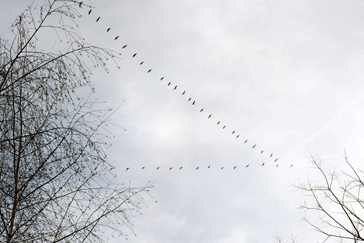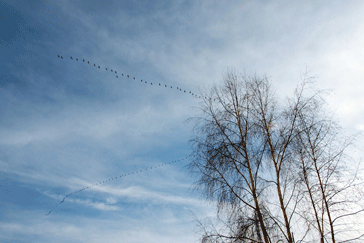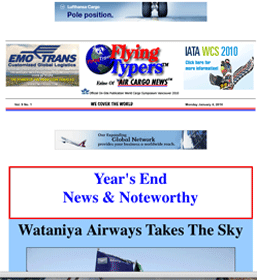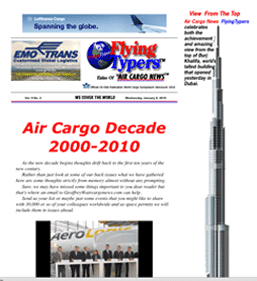What Will Happen
In 2010?
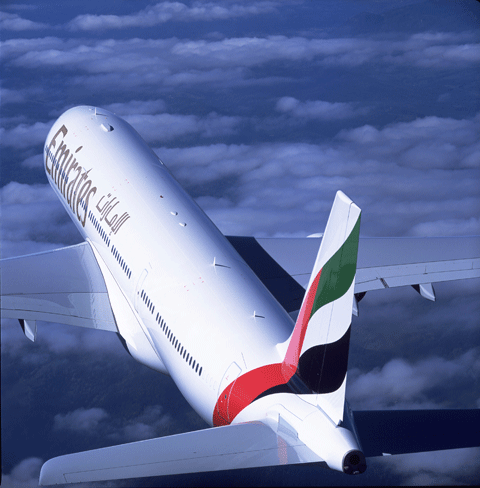 Here
we go around again as a new year and decade premier and everyone
is planning and maybe wondering, both at the same time. Here
we go around again as a new year and decade premier and everyone
is planning and maybe wondering, both at the same time.
We have seen the years 2000
until 2010 described as the “decade from hell” and worse,
in many year ending/first of the year reports.
But for us in air cargo what
has happened is history and what will take place moving ahead is
belly up to the bar right now.
So while Air Cargo News FlyingTypers
will pay some attention and salute (in one manner or another) the
decade past, right here and now in these pages this week begins
an exclusive series ”What Will Happen In 2010”.
The title and the questions
are simple and direct because this is not rocket science here, but
rather the voice of an industry that has been buffeted as rough
and rumple as it can get (or should) by everything else going on
in the world.
So here are a few minutes of
smart thinking and good advice and a reality bite of what lies ahead
and what to do about it.
You too are invited to contribute
to this series.
Write to me Geoffrey@aircargonews.com
.
“What Will Happen 2010”,
the industry speaks begins now. |
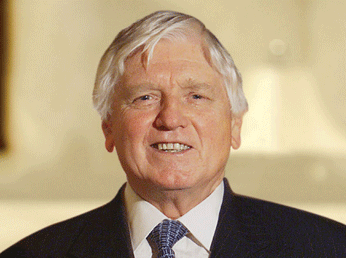 Maurice
Flanagan CBE, BA, Hon.FRAeS, FRAeS, FCIT Maurice
Flanagan CBE, BA, Hon.FRAeS, FRAeS, FCIT
Executive Vice Chairman
Emirates Airline & Group.
 In
the airline we had no particularly new initiatives in 2009 –
just carried on as we always do, doing our best to be profitable
whilst keeping up standards and managing fast growth. In
the airline we had no particularly new initiatives in 2009 –
just carried on as we always do, doing our best to be profitable
whilst keeping up standards and managing fast growth.
Dnata and Group Services, under
their President Gary Chapman expanded significantly in Airport
Services, acquiring businesses in Australia, UK, and Switzerland
added to those they already own in Singapore, Pakistan, and Manila.
Dnata’s joint ventures with
Whitbreads for Premier Inns and Costa Coffee, opened new outlets
in the UAE and Turkey.
Our 2009-10 financial year is April
to March.
We had to declare our audited results
for the first half, because of conditions attached to a bond.
Our net profit was $205 million
for the airline, $240 million for the Group, much better than
for the same period in the previous year.
We expect the second half to be
even stronger.
During the financial year we added
four A380s and ten Boeing 777s to our fleet.
 For financial year 2010/11, more of the same on all fronts, plus
a total of seven A380s and one Boeing 777 to be added to the fleet.
For financial year 2010/11, more of the same on all fronts, plus
a total of seven A380s and one Boeing 777 to be added to the fleet.
|
| 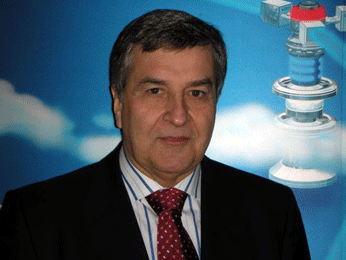 Stan
Wraight Stan
Wraight
President
Strategic Air Cargo Solutions Int’l
SW: I
have heard both conservative and pessimistic, and just about every
conceivable opinion and quite frankly I think 2010 will be much
better than 2009, but still count on an air cargo market that
is 15 to 20 percent below 2007 levels.
Some regions will perform much better
than others of course and I think the traditional routes of Asia
to Europe and North America will bounce back faster than many
expect.
FT: What
surprised you?
SW: The
withdrawal of capacity from all cargo operators, especially 747
and MD11 operators.
The same people who for years before
had been dipping into a seemingly endless pool of optimism on
demand, had to park these aircraft.
It must have led to horrible scenes
in the boardrooms around the world.
FT: Why
are there China backlogs and despite slow business elsewhere,
resources are not put into that market at once?
SW: Supply
and demand, and common sense ruled for once.
Parking an aircraft and mothballing
it is an expensive process and not reversed easily.
And if you were an airline executive,
would you want to take that risk for 8 to 12 weeks knowing that
the market can fall as fast as it can rise?
I certainly would not, especially
after having to tell my board that they had to go in the desert
in the first place.
When an aircraft is parked, you
only have the fixed costs to account for, the variables are gone.
Usually the fixed costs are now
less than 50% with fuel and other variables being what they are.
And of course less capacity drives
yield up on the services that remain, a win/win for the airlines.
FT: Do
you think air cargo will make any major breakthroughs in the years
ahead?
SW: I
would certainly hope so, but doubt it as far as airlines go.
There is massive room for improvement
in the scheduled airline business in basic processes, training
and management recruiting, and business processes that have to
be relative to the new environment.
Unfortunately as the industry has
been hit so hard in the past years we have all seen the necessary
cut backs and redundancies that resulted. This hit hard and in
the legacy carriers especially.
As a consequence many young professionals
desperately needed will not look upon aviation as a career, why
would they?
We have to make a quantum leap to
change the image in the boardrooms and most importantly the profitability
of cargo as both a contributor to revenue in the case of combination
carriers, and as a core business in the case of all cargo operators.
If we don’t, the money needed
won’t be there for investment and one sector of the industry,
the one that’s not controlled by integrators, will cease
to be a competitive alternative. Belly space will be there always,
but sold as an absolute commodity and by using the contribution
model which usually only has the effect of undervaluing the product
you have and ruining the market for others.
So a viable cargo market is in every
airline’s benefit.
The biggest breakthroughs and best
hopes for the future do not lie with airlines anymore as they
have cut as deeply as they can, but I believe in airports, governments
and service providers to the industry, an area that’s vastly
underestimated for its potential to make a difference.
The problem is that this sector
of the business lacks the clarity and transparency that it will
take, I hope we can change that.
Airline economics today mean margins
that cannot support punitive taxes and fees.
Taj Mahals for airports that cannot
be afforded, and airport fees and rules that are simply based
on ignorance of the economics of the client.
FT: Which
companies do you admire most?
SW: I
would have to say that over the past 40 years or so I have been
in this business my opinions have changed dramatically. Who can
dispute the tremendous influence and market leadership in the
past that KLM - Lufthansa and Air France showed in Europe, Singapore
Airlines – Cathay - China Airlines - JAL and NCA showed
in Asia and Northwest in the USA. Fed Ex and UPS, what a success
story that has been, truly remarkable.
In this environment, I would say
Swiss. First because it recognized the true value of cargo to
even a smaller passenger oriented airline that Swiss became after
the Swissair debacle, and made cargo a pillar in its rebirth by
placing a seasoned executive as CMO. He then built on the strength
of the Swiss market and former Swissair staff by creating a product
portfolio that exploited the benefits of quality direct air cargo
services.
And last I have to compliment Lufthansa’s
cargo management for having the good sense and market knowledge
in not making the huge mistake of trying to take Swiss Cargo and
place it under the management of Lufthansa Cargo.
That would have ruined it for sure,
and they obviously saw that to the benefit of the Swiss air cargo
clients.
And who of course cannot admire
Emirates and what Ram Menen has done, but enough has been said
about that.
Swissport Cargo in ground logistics
and Cologne Airport also come to mind. In aircraft leasing, GECAS
2010 will again test the strength of the mettle in many airlines
and especially the executives that run them.
I just hope that shippers and consignees
and especially the governments understand that a vibrant and competitive
industry is better for them even in these horrible times than
the alternative, which seems to be what everyone is hell bent
on creating.
|
| 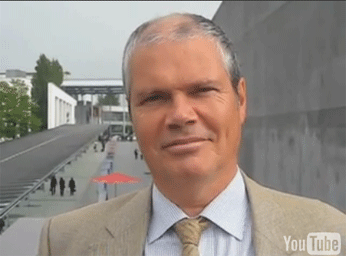 Oliver
Evans Oliver
Evans
Chief Cargo Officer
SWISS International Airlines
OE: The
global economy will continue on a recovery path, and airfreight
will be an early indicator as always.
The complexity of a
globalized network of manufacturers, suppliers and buyers, all
still undergoing structural changes dictated by the severity of
the crisis experienced in 2009, will provide us still with a number
of surprises, some of which will be nasty and unpalatable: woe
betide the manager who has looked up at the clearing skies, folded
his umbrella and left it at home.
When one major freighter operator
starts to bring back capacity parked in the desert, others will
rapidly follow (because individual thought and action is much
rarer than herd instinct and mimicry), so that overcapacity will
ruin economically viable freight rates in a number of markets.
The massive and unstoppable
shift in economic importance away from America and especially
Europe towards the East (China and India) which should by now
surprise nobody, will still catch some unawares and unprepared.
New environmental awareness
will lead to a plethora of new measures, many of which may be
ineffective or counterproductive because of the pressure to "do
something" overcoming the capability to discuss and implement
rational decisions: costs will go up, for the suppliers but also
for the end user. Similarly the ghastly imagination of those who
would seek heaven by creating hell on earth will lead to ever
more costly and cumbersome security measures which will again
have to be paid through the supply chain.
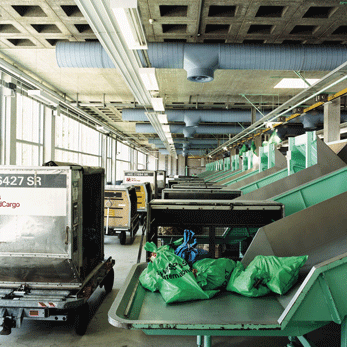 In
2010 nobody will be bored. In
2010 nobody will be bored.
The best will grab the opportunities.
FT: How
successful have your initiatives from 2009 been?
OE: We
have gained market share in our targeted segments, customers have
recognised value and paid a relative premium for it.
We have tackled costs in all
areas, and happily many of the cost savings are structural and
recurring, so that we will benefit from them also in the long
run, enabling us to invest further in competitive service enhancement.
Although we achieved savings with our suppliers, this fell short
of our demands and expectations because most gains should come
from fundamental process re-engineering, within companies and
across interfaces, rather than from negotiation: much hard, hard
work remains to be done.
FT: What
are some things you are doing differently than before the financial
crises?
OE: We
are utilizing our precious resources (human and physical) even
better than before.
We have discovered often unexpected
pockets of efficiency gains even at the heart of processes that
had seemed sound.
We have become more flexible
and adaptable.
Market intelligence, forecasting
and customer feedback have risen even further up our list of priorities.
FT: What
can/should everyone in air cargo do to make the industry better?
OE: Stop
bleating. Stop internal bickering, grand standing and politics.
Find their own wavelength and path, individually and as a company,
instead of following each other.
Make a quantum leap forward
in the quality of legal, constructive dialogue across the industry.
The customer of 2010 will
still have many, many reasons to deplore the cumbersome process
of air transport and the extremely high costs associated with
it. We cannot wave a magic wand to make his every wish come true
in 2010, but we should all strive with every sinew in our body
to make the air cargo world of the next decade a decidedly better
place.
|
| 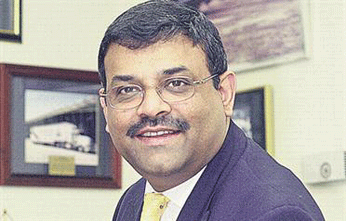 Ram
Menen Ram
Menen
Divisional Senior Vice President
Emerates SkyCargo
RM: The
worst is now over and the recovery process is firmly on its way.
We are likely to experience steady growth during the first half
of the year (a bit subdued compared to the 4Q 2009) and I am hoping
for a strong last half of the year.
FT: How
successful have your initiatives from 2009 been?
RM: We
survived!
So I reckon our initiatives worked
well!
Though our yields were down, we
did manage a slight growth in volumes.
FT: What
are some things you are doing differently than before the financial
crises?
RM: We
are still doing exactly what we have done.
Our cost containment, as well as,
productivity improvement initiatives which were in place still
continue and so does our strategy of working closely with our
customer in order to provide excellence in service to cater to
their changing requirements.
FT: What
can/should everyone in air cargo do to make the industry better?
RM: Have
long-term strategies for the betterment of processes in servicing
the globalized world trade and hold on to your nerves and sense
of humor while managing challenges created by cyclical economic
downturns!
Embrace IATA’s e-freight initiatives—it
will help save the environment whilst bringing in fresh cost efficiencies
within the supply chain operations.
Work on simplifying everything that
we do.
|
 John
Ryan John
Ryan
J.R. International Cargo
Consultant Air Cargo
 I
think 2010 will be a mixed bag with continued consolidation in
air cargo as airlines cut back service and downsize aircraft. I
think 2010 will be a mixed bag with continued consolidation in
air cargo as airlines cut back service and downsize aircraft.
That Delta terrorist issue with
an underwear bomber on Christmas day could have some negative
effect as well.
Word is that business travel bookings
are being impacted and if seats are not being sold the ripple
effect could certainly impact cargo with aircraft and schedule
reductions.
A bright spot are indications that
the economy in USA and China and South America are rebounding
a bit.
On another challenge facing the
future of air cargo I believe that the way to make the industry
better is to keep tight controls on costs, but not forget about
the customers.
Airlines must never forget the agents
and still must be seen and serviced.
Carriers should change their focus
from "market share" and stealing each other’s
business from the agents by spiraling down prices, and agents
and other industry stakeholders should quit demanding that carriers
fulfill unreasonable requests (rates etc.).
If they (agents) want to compete
they should look at what added value their company can give to
their customers and price accordingly.
 After
all air cargo is a service business. The industry can only get
better with all parties communicating as business partners to
work together in an atmosphere of trust. After
all air cargo is a service business. The industry can only get
better with all parties communicating as business partners to
work together in an atmosphere of trust.
|
|



 Here
we go around again as a new year and decade premier and everyone
is planning and maybe wondering, both at the same time.
Here
we go around again as a new year and decade premier and everyone
is planning and maybe wondering, both at the same time. Maurice
Flanagan CBE, BA, Hon.FRAeS, FRAeS, FCIT
Maurice
Flanagan CBE, BA, Hon.FRAeS, FRAeS, FCIT Stan
Wraight
Stan
Wraight Oliver
Evans
Oliver
Evans In
2010 nobody will be bored.
In
2010 nobody will be bored.  Ram
Menen
Ram
Menen John
Ryan
John
Ryan Air
Cargo News FlyingTypers leads the way again as the world’s first air
cargo publication to connect the industry to the broadly expanding and
interactive base for social commentary—Twitter.
Air
Cargo News FlyingTypers leads the way again as the world’s first air
cargo publication to connect the industry to the broadly expanding and
interactive base for social commentary—Twitter.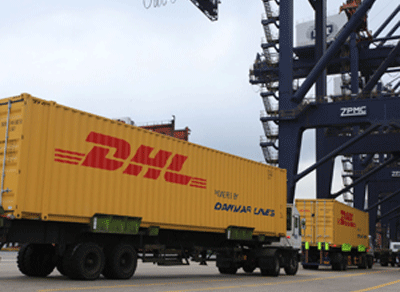
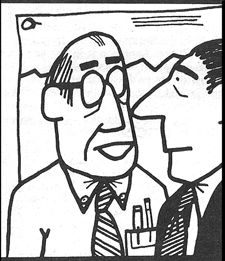
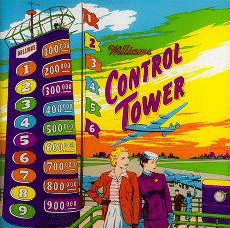
 January
10: For the first two weeks of Jan. 2010 San Francisco International
Airport is offering free-play pinball to the public on classic pinball
machines.
January
10: For the first two weeks of Jan. 2010 San Francisco International
Airport is offering free-play pinball to the public on classic pinball
machines. 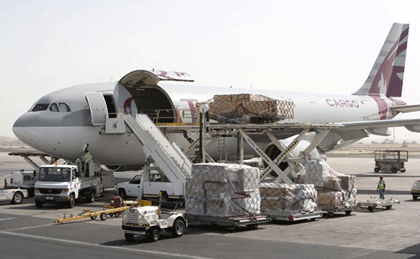 January
9: Turkish Airlines signed order for 20 Airbus mix of A319s
and A321s scheduled for delivery from 2011 onwards.
January
9: Turkish Airlines signed order for 20 Airbus mix of A319s
and A321s scheduled for delivery from 2011 onwards. 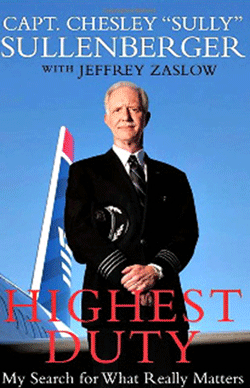 Feel
good story during of the past decade continues as Captain Sully authored
a book, the passengers penned their own version of the tale and now
American television marked the one year anniversary with a one hour
special last night titled "Miracle On The Hudson".
Feel
good story during of the past decade continues as Captain Sully authored
a book, the passengers penned their own version of the tale and now
American television marked the one year anniversary with a one hour
special last night titled "Miracle On The Hudson".